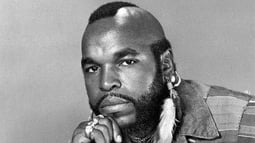

Hair Loss: What Are the Causes?
Photos Getty Images
Words Clément Laré
Share the article on
Hair loss can be an obsession for many men. We understand all too well that once that fateful moment has come, it sure is difficult to escape it. In this article, Horace explains the reasons that are causing your hair to fall out.
There’s one prospect that makes many men’s hairs stand up in fear: losing their hair. Sadly, the with the passage of time comes the irreversible countdown towards the end of full hair. In 2015, an Ifop survey revealed that 13% of French men report suffering from baldness. What’s more, three out of four men believe they are losing their hair. Add to that to the number of men who are in complete denial of it and you will understand how lucky the ones who escape it are!
Whose fault is it? As the Harvard Medical School reminds us, the vast majority of hair loss in men is due to the convergence of three factors: a hereditary predisposition, male hormones, and ageing. This is called androgenetic alopecia (the medical term for “hair loss”).
Hair Loss: Testosterone in Question
In this case, it’s the transformation of testosterone that causes hair loss. Once in contact with an enzyme, testosterone transforms into dihydrotestosterone (DHT), a molecule that pushes hairs to renew themselves more quickly, explains the French Society of Dermatology. After several cycles, the hair follicle eventually tires out, dies, and disappears. In its final stage, androgenetic alopecia can lead to baldness, leaving you completely or partially bald.
This type of hair loss affects men from the age of puberty. But it’s generally with advancing age that the risks increase. After the age of 50, over 50% of men are reported to be affected by hair loss, according to the American National Library of Medicine. Hair loss generally follows a well-known pattern: the temples and forehead begin to thin before it reaches the top of the head.
A Hereditary Problem
If you’re affected by hereditary hair loss, there aren’t many people to blame except for the people in your family tree. The common idea is to look at your father's hairline to know what to expect when it comes to yours. However, according to a 2017 study published in the scientific journal PLOS Genetics, it’s not so much the paternal genetic heritage as the maternal one that would influence the evolution of your hair implantation.
Other Causes of Hair Loss
While androgenetic alopecia is there are other reasons as well. Alopecia areata, an autoimmune disease, can create round patches where hair follicles no longer grow. It’s impossible to predict and can affect both men and women. A high level of stress on the body can also trigger hair loss. This often appears two to three months after a traumatic event such as illness, major surgery, or infection. Medications can also contribute to shedding, especially those used for chemotherapy. Lastly, your hair can also fall after being attacked, especially with excessive use of heating tools (like a curling iron or straightener) or with chemicals (colouring your hair, getting a perm, etc.). It’s better to take care of your hair as much as possible.












